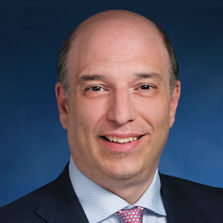
United Airlines earnings calls were not the most pleasant places to be two years ago. When the carrier pitched its aggressive growth plan out of its hubs, analysts offered harsh criticism that it was a recipe for fare wars and profit declines. Instead, that recipe turned out to be a little crow for the analysts.
The growth was the masterplan of United president Scott Kirby—who came to United from American Airlines in 2016 and now is set to succeed CEO Oscar Munoz in May—and to help pull it off, United poached one of Kirby's former American colleagues, Andrew Nocella, who oversees network and commercial strategy as chief commercial officer. Kirby rightly had pointed out that United had ceded marketshare for years by cutting service to smaller domestic markets, but building that back required careful execution.
"United had the best hubs in the country, but they were underperforming across a bunch of different dimensions," Nocella said. "I described it as a gigantic puzzle, and with our network changing shape and size, how do we put that puzzle [together] and how do you nurture and develop it, which determines where we are going to be five to 10 years from now?"
The goal, Nocella said, has been to have 80 to 90 aircraft on the ground eight to nine times per day in United's mid-continent hubs. Denver, for example, has "grown dramatically" under that plan, as United had the gates and real estate to expand. Others, such as Chicago, have been more of a challenge due to strained gate availability, but United still has grown its annual flight count at O'Hare by about 10 percent during the past two years, compared with American's growth of about 3 percent, according to Crain's Chicago Business.
Rather than dilute earnings, United has seen profits grow, and that growth strategy is set to continue in the coming year, Nocella said. As those profits have improved, so has its share of corporate travel, he said.
"It's an exercise of enhancing the quality of the airline across dimensions, so more people choose us, and more businesspeople choose us, while creating schedules that improve efficiency and lower costs, so we can reinvest those profits," Nocella said.